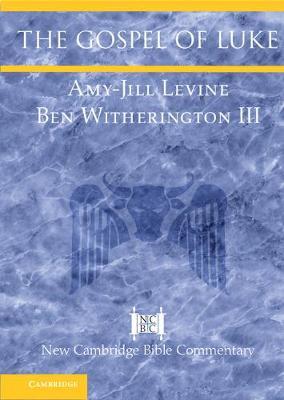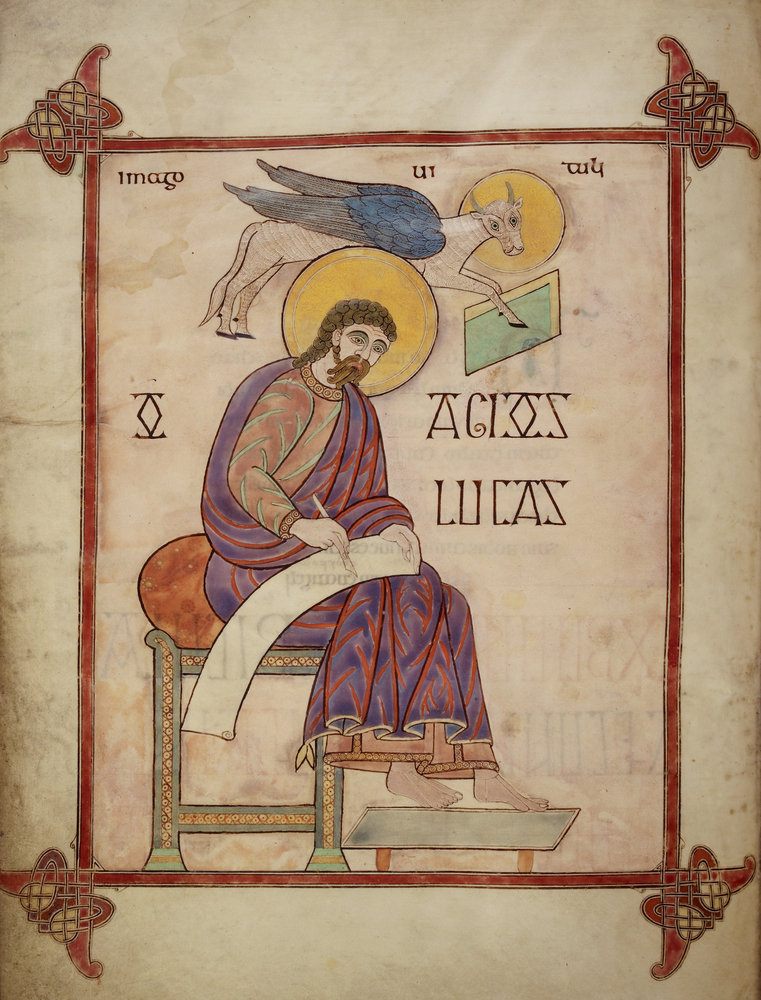Podcast: Play in new window | Download
Subscribe: Spotify | Email | RSS
 For the first time, two accomplished New Testament scholars, one a Jew and the other a Christian, have coauthored a commentary on a book of Bible. Weighing in at 715 pages, The Gospel of Luke by Amy-Jill Levine and Ben Witherington III is a part of the New Cambridge Bible Commentary series. It does all of the things a full commentary should, but it also contains a series of friendly arguments in written form between an evangelical Methodist scholar and an agnostic feminist Jewish scholar who attends an Orthodox synagogue but describes herself as “often quite unorthodox.” They disagree on Luke’s attitude towards Judaism, his view of women, and sometimes his meaning or sources. But there’s also a lot these two distinguished scholars agree on.
For the first time, two accomplished New Testament scholars, one a Jew and the other a Christian, have coauthored a commentary on a book of Bible. Weighing in at 715 pages, The Gospel of Luke by Amy-Jill Levine and Ben Witherington III is a part of the New Cambridge Bible Commentary series. It does all of the things a full commentary should, but it also contains a series of friendly arguments in written form between an evangelical Methodist scholar and an agnostic feminist Jewish scholar who attends an Orthodox synagogue but describes herself as “often quite unorthodox.” They disagree on Luke’s attitude towards Judaism, his view of women, and sometimes his meaning or sources. But there’s also a lot these two distinguished scholars agree on.
In this wide-ranging discussion we focus on this book’s origin, their agreements and disagreements, mistaken anti-Jewish readings of Luke, their opposition to replacement theology readings of Luke or Paul, radical views about the gospels such as mythicism, ancient anti-Marcionism and Luke 1-2, Luke’s anti-docetism, and the genre, authorship, style, and dating of this famous gospel.
They have produced a model of informed, respectful, and reasonable dialogue between Christians and Jews, and you can hear aspects of their long dialogue here in part 1 of our discussion. (Part 2 is here.)
Links for this episode:
- The Gospel of Luke
- Dr. Amy-Jill Levine
- Dr. Ben Witherington III
- Dr. Witherington’s blog The Bible & Culture
- Bart Ehrman, Did Jesus Exist?
- Luke 1:1-4, Luke 18:1-8
- Paul and the baptized lion
- Infancy Gospel of Thomas
- Marcion
- Henry Cadbury
- The “Q” hypothesis about the synoptic gospels
- Mark Goodacre, The Case Against Q
- This week’s thinking music is “Dead From The Beginning, Alive Till The End” by Doctor Turtle.


Pingback: podcast 237 – Levine and Witherington on Luke – Part 2 – Trinities
It would even be more helpful yes biblical unitarians made sure to condemn any form of racism whatsoever!
“It would even be more helpful yes biblical unitarians made sure to condemn any form of racism whatsoever!”
Is there a notable problem of racism among Unitarians?
I would be helpful if biblical unitarians with different perspectives could engage in this kind of dialog.
Comments are closed.